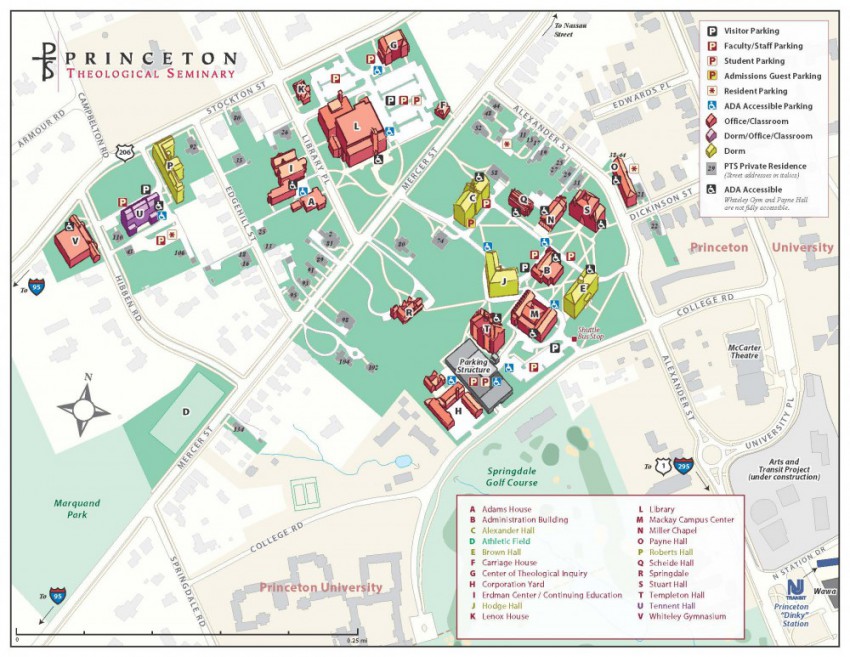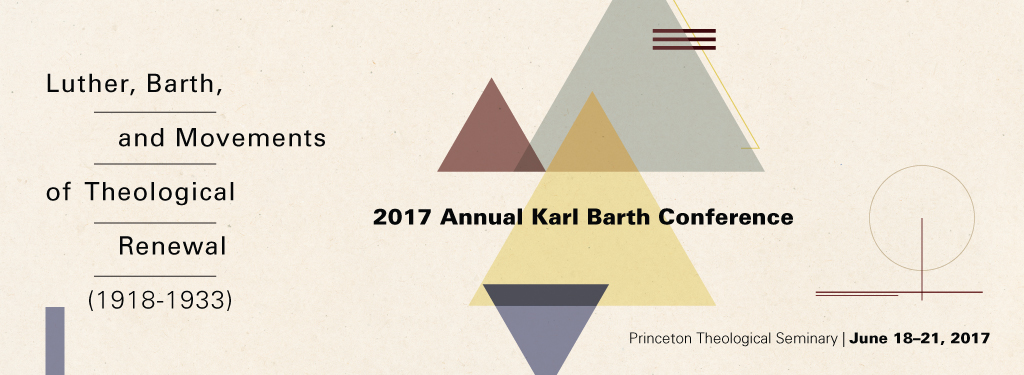
Date
Time
2017 Annual Karl Barth Conference

Luther, Barth, and Movements of Theological Renewal (1918-1933)
2017 Annual Karl Barth Conference
Princeton Theological Seminary, June 18-21, 2017
Conference Exposé
The years from 1900-1933 represent some of the most productive years in the history of German Protestant theology. New interests in history and religious experience would be brought to bear on the study of Martin Luther. No longer would his thought be construed as a system of theology. Rather he would be seen as the paradigm for a religious experience that had initiated the birth of Protestantism. Luther’s work that consolidated what would later be called the “Luther Renaissance” was the publication of his Commentary on Romans (1515/16) in 1908. In 1919 Karl Barth published the first edition of his Letter to the Romans. “Dialectical theology”, the movement that Barth would be closely identified with, had emerged. How are the two movements, the Luther Renaissance and dialectical theology, related? The conference “Luther and Barth During the Weimar Years (1905-1922)” investigates the intellectual, historical, philosophical, and theological impulses informing both movements, their interconnections, and their eventual coming apart. The conference will also serve as opportunity to introduce the groundbreaking work of contemporary German theologian Heinrich Assel to the English-speaking world.Renaissance and dialectical theology, related? The conference “Luther and Barth During the Weimar Years (1905-1922)” investigates the intellectual, historical, philosophical, and theological impulses informing both movements, their interconnections, and their eventual coming apart. The conference will also serve as opportunity to introduce the groundbreaking work of contemporary German theologian Heinrich Assel to the English-speaking world.
The conference is organized by three thematic units that follow each other chronologically. The conference begins with following introductory event:
Introduction: “1917”—“1883”—“1933”
Panorama: Luther Renaissance and Dialectical Theology: Heinrich Assel (Greifswald) and Bruce McCormack (Princeton Theological Seminary)
Presentation: Heinrich Assel (Universität Greifswald): “Luther Renaissance and Dialectical Theology – A Tour d’Horizon 1906-1935”, and Christine Svinth-Værge Põder (University of Copenhagen): “Der andere Aufbruch — The Luther Renaissance”
1. Anticipations (1900-1919)
In this unit, a number of impulses that gave rise to the Luther Renaissance and Dialectical Theology will be considered. The Jewish neo-Kantian philosopher Hermann Cohen is the most important formative influence on both movements. Yet anti-semitism characterized German culture at the time, a consideration that must be taken into account in this formative period that initiates Luther as Germanic Luther. Furthermore, the Romans commentary from 1908 stands as the watershed date.
- PD Dr. Hartwig Wiedebach (ETH Zurich): “Karl Barth on Kant‘s ‘Biblical Theology’: A Reading with Hermann Cohen”
- Prof. Dr. Jacqueline Mariña (Purdue University): “The Religious A Priori in Otto and its Kantian Origins”
- Prof. Dr. Christine Svinth-Værge Põder (University of Copenhagen): “Luther’s Lectures on Romans in the works of Karl Holl, Rudolf Hermann, and Karl Barth”
- Prof. Dr. Christine Helmer (Northwestern University Evanston): “Karl Holl, Religion, and Values”
2. Parallel Movements (1919-1926)
This unit investigates the ways in which the Luther Renaissance and dialectical theology developed in relation to each other in the period between Barth’s Letter to the Romans (1919) and his writing of dogmatics (1921-1926). This was the time of the emergence of the two movements. It was tracked by the continuing reception of Luther and characterized by mutuality and reciprocity. The emergence of both movements was also deeply tied with reflections on the devastation precipitated by the Great War. Here we see discussions with Jewish thinkers (Rosenzweig, Benjamin, and Buber), an emerging political dimension particularly among Luther scholars vested in the Germanic Luther (Hirsch, Althaus and Elert), and the lines of critical reflection with growing concern of theology’s responsibilities to church and society on the one hand (Ernst Wolf, Hans-Joachim Iwand), and theology’s task in relation to the word of God (Barth, Gogarten, and Bultmann) on the other.
- Prof. Dr. Michael Jennings (Princeton University): “The World, Hollowed Out: Walter Benjamin as a Reader of Barth”
- Prof. Dr. Claire Sufrin (Northwestern University Evanston): “Martin Buber Between Revelation and Scripture”
- Prof. Dr. Volker Leppin (Universität Tübingen): “Luther and Mysticism: the Case of the Seebergs and Vogelsang”
- PD Dr. Henning Theißen (Universität Greifswald): Barth’s Explicit Reception of Luther
3. Disruption (1927-1933)
With Weimar Germany heading for collapse, the theological differences between the Luther Renaissance and Dialectical Theology were also hardening. Luther was increasingly coopted for political and nationalist agenda, while dialectical theology as a coherent movement was coming apart. This unit will focus on the theological and political developments of topics during this time of hardening of differences against the backdrop of a collapsing Weimar Republic.
- Prof. Dr. Heinrich Assel (Universität Greifswald): “Otherwise than Barth or Beyond Gogarten – Trinity, Incarnation, Political Theology and Gogarten’s Luther”
- Dr. Christian Neddens (Universität Saarbrücken): “Werner Elert and Hans Joachim Iwand – Political Theology and Theology of the Cross”
- Prof. Dr. Bruce McCormack (Princeton Theological Seminary): “The Man God Became or the God Who Became Man? The Concept of Revelation in the Theologies of Karl Barth and Friedrich Gogarten”
- Prof. Dr. Hent de Vries (John Hopkins University, Baltimore): “Theologia crucis: Dialectics, Phenomenology, Politics”
Sponsored by:
Registration
Registration for the 2017 Barth Conference is now open! You can click here to register online.
If you have any questions regarding registration, email us at barth.center@ptsem.edu
Plenary Speakers
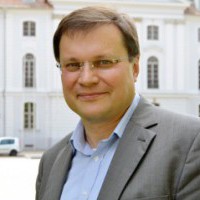 Heinrich Assel
Heinrich Assel
Heinrich Assel is Chair of Systematic Theology at the University of Greifswald. He formerly held positions are the University of Erlangen and the University of Bonn, and he was also a guest lecturer at the University San Anselmo Jerusalem. He is the editor of Verkündigung und Forschung, and the co-editor of both Encyclopedia of the Bible and its Reception, and Berliner Theologische Zeitschrift. He has published on a variety of topics including Jewish philosophy of religion, Lutheran theology in 20th century, hermeneutics and the reception of the Bible, theory of worship, and the ethics of personalized medicine.
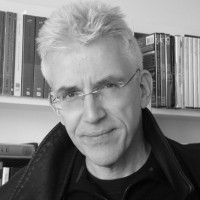 Hent de Vries
Hent de Vries
Hent de Vries is Director of the Humanities Center at Johns Hopkins University, where he holds the Russ Family Chair in the Humanities and Philosophy. He is also Director of the School of Criticism and Theory at Cornell University. He is the author of Minimal Theologies: Critiques of Secular Reason in Theodor W. Adorno and Emmanuel Levinas (Johns Hopkins UP, 2005), Religion and Violence: Philosophical Perspectives from Kant to Derrida (Johns Hopkins UP, 2002, 2006), and Philosophy and the Turn to Religion (Johns Hopkins UP, 1999, 2000). He is the editor of Religion Beyond a Concept (Fordham UP, 2008), the co-editor of Paul and the Philosophers (Fordham UP, 2013) as well as the editor of the Stanford UP book series Cultural Memory in the Present. Most recently, he published his first book in Dutch, Kleine Filosofie van het Wonder (Philosophy of the Miracle: A Short Introduction [Boom, 2015, forthcoming in English from Bloomsbury]), and co-edited the volume Love and Forgiveness for a More Just World (Columbia UP, 2015).
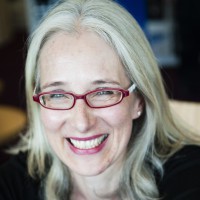 Christine Helmer
Christine Helmer
Christine Helmer is Arthur E. Andersen Teaching and Research Professor at Northwestern University in Evanston, Illinois. She is also Professor of Religious Studies and German. She is the author of Theology and the End of Doctrine (Westminster 2014) and is editor (and co-editor) of numerous volumes in the areas of Schleiermacher studies, philosophy of religion, and biblical theology. Her most recent publication, co-edited with Bo Kristian Holm, is Lutherrenaissance: Past and Present (Vandenhoeck & Ruprecht 2015). Her MOOC, “Luther and the West,” is available on the web beginning on Oct. 3, 2016, and her current research interest is on the relation between the Lutherrenaissance and the origins of the modern study of religion.
 Michael Jennings
Michael Jennings
Michael Jennings, the Class of 1900 Professor of Modern Languages in the Department of German at Princeton University, focuses his teaching and research on European culture in the twentieth century. In addition to literature, he teaches on topics in cultural theory and the visual arts, with special emphasis on photography. He is the author of two books on Walter Benjamin: Dialectical Images: Walter Benjamin’s Theory of Literary Criticism (Cornell University Press, 1987) and, with Howard Eiland, Walter Benjamin: A Critical Life (Harvard University Press, forthcoming in 2013). He also serves as the general editor of the standard English-language edition of Benjamin’s works, Walter Benjamin, Selected Writings (Harvard University Press, four volumes, 1996ff.) and the editor of a series of collections of Benjamin’s essays intended for classroom use, including The Writer of Modern Life: Essays on Charles Baudelaire (2007); with Brigid Doherty and Thomas Levin, The Work of Art in the Age of its Technological Reproducibility and other Writings on Media (2008); and One Way Street (2016). His published work includes articles on the theory of art history (Alois Riegl, Wihelm Worringer), modernism in its relationship to capitalist modernity (Robert Musil, Franz Kafka, Uwe Johnson), Weimar culture (Berlin Dada, Alfred Döblin, Thomas Mann, forms of literary criticism), eighteenth-century aesthetics (Sturm und Drang, J.M.R. Lenz, Friedrich Hölderlin), modern media (print culture and modernism), and German photography (Laszlo Moholy-Nagy, August Sander, Albert Renger-Patzsch, Michael Schmidt). He is the editor, with Detlef Mertins, of a facsimile edition of the avantgarde journal G: Journal of Elemental Form-Creation, (Gerry Research Institute, 2010); with Tobias Wilke, of a special issue of Grey Room on Walter Benjamin and the Theory of Media; and with Stanley Corngold, of a special issue of Monatshefte on Kafka’s Late Style. He is currently at work on two book projects: a critical biography of Bertolt Brecht and a study of the German photo-essay in the twentieth century.
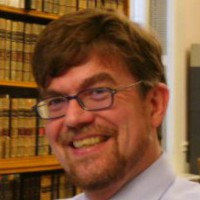 Volker Leppin
Volker Leppin
Volker Leppin (b. 1966) studied Theology in Marburg, Jerusalem, and Heidelberg. He earned his doctoral degree in Heidelberg with a study on the late scholastic William of Ockham in 1994, and his Habilitation with a book on Lutheran apocalypticism in 1997. From 2000 to 2010, he held the chair for Church History in Jena, and since 2010, he holds the same position in Tübingen. He is a member of the academies in Leipzig and Heidelberg. His research fields are history and theology of late medieval and reformation time. Among his several books, the best known are Martin Luther (Darmstadt: Wissenschaftliche Buchgesellschaft, 2nd edition 2010) and Die fremde Reformation (München: Beck 2016).
Photo by Hannegreth Grundmann
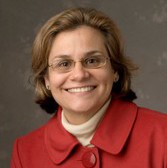 Jacqueline Mariña
Jacqueline Mariña
Jacqueline Mariña is Professor of Philosophy at Purdue University. She has published numerous book chapters and journal articles, and is the author of Transformation of the Self in the Thought of Friedrich Schleiermacher (Oxford 2008). She is also editor of The Cambridge Companion to Friedrich Schleiermacher (Cambridge 2005). She is currently working on a book on personal identity in Kant.
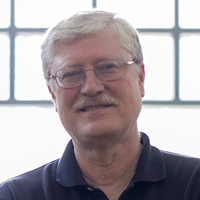 Bruce L. McCormack
Bruce L. McCormack
Bruce Lindley McCormack is the Executive Director of the Center for Barth Studies. As Princeton Seminary’s Charles Hodge Professor of Systematic Theology, Bruce earned his Ph.D. from Princeton Theological Seminary in 1989. He also holds an M.Div. from Nazarene Theological Seminary and an honorary doctorate of theology from the Friedrich Schiller Universitat in Jena, Germany. A Presbyterian, Bruce is interested in the history of modern theology, from Schleiermacher and Hegel through Karl Barth. His courses cover Schleiermacher’s Glaubenslehre and the doctrine of atonement in Christian tradition. He is a member of the General Assembly committee commissioned to write a new catechism for the Presbyterian Church (USA) and has been a member of the panel on doctrine for the Church of Scotland. A member of the Karl Barth-Stiftung in Basel, Switerzland, he is North American editor of the Zeitschrift fuer Dialektische Theologie, published in Holland.
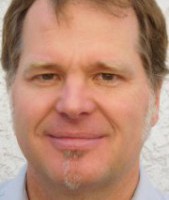 Christian Neddens
Christian Neddens
Christian Neddens (b. 1972) is a lecturer in the Department of Historical and Systematic Theology at Saarland University. He studied Protestant Theology in Göttingen, Bonn, and Oberursel. After five years of service as a minister in northern Germany, he returned to the university in 2011. In 2008, he received his Ph.D. from Greifswald University. He is the author of Politische Theologie und Theologie des Kreuzes: Werner Elert und Hans Joachim Iwand (2010), and he is the editor and co-author of Über das Zusammenleben in einer Welt: Grenzüberschreitende Anstöße Hans Joachim Iwands (2014), of Spektakel der Transzendenz: Kunst und Religion in der Gegenwart (2016) and Schalom Schabbat, Alexander: Christlich-jüdische Begegnung in der Grundschule (2016). Currently, he is working on a research project on the image of Christ in Lutheranism and on visual communication of justification. He published papers on theory and theology of the image, on political theology, the Lutheran awakening in the 19th-century and on theologians of the 20th century. Since 2015, he is a board member of the HansIwand Stiftung, and since 2013, he is a member of a research group on theology and visual arts.
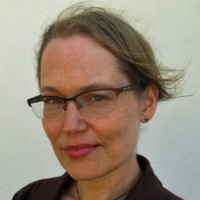 Christine Svinth-Værge Põder
Christine Svinth-Værge Põder
Christine Svinth-Værge Põder is a professor (mso) for Systematic Theology at the Faculty of Theology at Copenhagen University, Denmark, since 2013. She received her PhD from Aarhus University in 2007 where she also, subsequently, held a postdoc fellowship. She is the author of Doxologische Entzogenheit. Die fundamentaltheologische Bedeutung des Gebets bei Karl Barth (PhD-thesis, eng. title: Doxological Hiddenness. The Fundamental Theological Significance of Prayer in Karl Barth’s Work) for which she was awarded the PhD-prize of the Aarhus University Research Foundation in 2008. She is editor and co-author of Mellem tiderne – fem dialektiske teologer which is a Danish introduction to dialectical theology. Currently she is working on a research project on the reception and transformation of concepts of negativity in Luther’s Lectures on Romans (e.g. resignatio ad infernum and the perception of sin and judgement in prayer) focusing particularly on Karl Holl, Rudolf Hermann, the early Karl Barth and Regin Prenter.
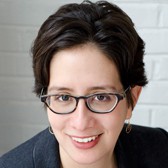 Claire E. Sufrin
Claire E. Sufrin
Claire E. Sufrin is a lecturer in the Department of Religious Studies and the Crown Family Center for Jewish and Israel Studies. She teaches courses on modern Judaism and Christianity including American Judaism, Modern Jewish Thought, Gender and Judaism, Religion and Literature, and God after the Holocaust. She also teaches Introduction to Judaism.
Dr. Sufrin holds a BA from Yale University and a PhD from Stanford University. Her current research project considers the relationship between religion and literature through an examination of novels written by American Jews that address theological themes. Previous publications include “History, Myth, and Divine Dialogue in Martin Buber’s Biblical Commentaries,” Jewish Quarterly Review (Winter 2013), 74-100.
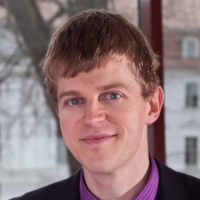 Henning Theißen
Henning Theißen
Dr. theol. habil. Henning Theißen, b. 1974 in Mönchengladbach (Germany), is the holder of a Heisenberg Grant from the Deutsche Forschungsgemeinschaft and currently (2016) fills a temporary position as a professor of Systematic Theology at the University of Bochum. He studied protestant theology and philosophy from 1994 to 1999 at the universities of Bochum, Tübingen and Bonn where he also received his Ph.D. (2004). His thesis on eschatology and judaism was advised by Prof. Dr. Dr. h.c. mult. Gerhard Sauter. After a five years service as a minister in Bonn and Cologne, he moved with his wife and family to Greifswald to work there as an assistant to the Chair of Systematic Theology (Prof. Dr. Heinrich Assel). He completed his postdoc thesis on church theory in Schleiermacher, Ritschl, and Barth at the University of Greifswald in 2011. The following year he was awarded Hanns Lilje Prize by the Göttingen Academy of Sciences and Humanities for his research in concepts of united theology that overcome the bias between the different confessional cultures in Protestantism. The relationship between doctrinal and ecclesial factors of systematic theology has been in the center of his research for many years. He has been a member of the steering groups of several interchurch consultations both on a national and a European level and is also a member of the Scientific Society for Theology, the Society for Protestant Theology and the International Schleiermacher Society. Himself a father of three daughters, he engages in the Protestant Association for Adoption and Foster Child Care and has co-initiated a research network for capability ethics in favor of animals, children, and mentally disabled people.
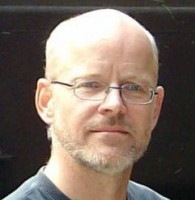 Hartwig Wiedebach
Hartwig Wiedebach
Hartwig Wiedebach teaches general and Jewish philosophy and medical ethics at the Swiss federal Institute of Technology (ETH) in Zürich. He has served as a Guest Professor in Heidelberg, Frankfurt am Main, and Kattowitz. Earlier on, he was active for 12 years in the sphere of social pedagogy and psychiatric patient care.
Dr. Wiedebach conducts research inter alia on the Marburg School of philosophy. Since 2007, he has been in charge of the Hermann Cohen Archive in Zürich, and he is a member of the Executive Committee of the Hermann Cohen Society and the Viktor von Weizsäcker Society. He is co-editor of Hermann Cohen, Werke (Hildesheim: Olms), and Supplements to the Journal of Jewish Thought and Philosophy (Leiden/Boston: Brill). Among his book-length studies are: Die Hermann-Cohen-Bibliothek (2000); The National Element in Hermann Cohen’s Philosophy and Religion (2012); Pathische Urteilskraft (2014).
Schedule
Luther and Barth During the Weimar Years (1918-1933)
June 18-21, 2017
*Please note that this conference schedule is tentative and subject to change.
All conference lectures will be held in Stuart Hall, Room 6
Sunday, June 18th
2:00-5:00 PM – Registration
6:00-7:30 PM – Banquet
7:30-9:00 PM – Opening Lecture (Introduction)
(3) brief lectures:
• Panorama: Luther Renaissance and Dialectical Theology – Heinrich Assel (Greifswald), Bruce McCormack (Princeton Theological Seminary), and Christine Pöder (Copenhagen)
Monday, June 19th – Anticipations
8:00-9:00 AM – Breakfast
9:15-10:15 AM – Lecture 1 – Hartwig Wiedebach (Zurich)
10:15-10:45 AM – Break with coffee
10:45-11:45 AM – Lecture 2 – Jacqueline Mariña (Purdue)
Noon-1:00 PM (Lunch)
1:30-2:30 PM – Lecture 3 – Christine Pöder (Copenhagen)
2:30-3:00 PM – Break with refreshments
3:00-4:00 PM – Lecture 4 – Christine Helmer (Northwestern)
4:15-5:00 PM – Break
5:00-6:30 PM – Dinner – Open Dinner in Princeton
7:00-8:30 PM – Summary panel discussion for “Anticipations” papers
Tuesday, June 20th – Parallel Movements
8:00-9:00 AM – Breakfast
9:15-10:15 AM – Lecture 5 – Michael Jennings (Princeton University)
10:15-10:45 AM – Break with coffee
10:45-11:45 AM – Lecture 6 – Claire Sufrin (Northwestern)
Noon-1:00 PM (Lunch)
1:30-2:30 PM – Lecture 7 – Volker Leppin (Tübingen)
2:30-3:00 PM – Break with refreshments
3:00-4:00 PM – Lecture 8 – Henning Theissen (Greifswald)
4:15-5:30 PM – Break
5:30-6:30 PM – Dinner
7:00-8:30 PM – Summary panel discussion for “Parallel Movements” papers
Wednesday, June 21st – Disruption
8:00-9:00 AM – Breakfast
9:15-10:15 AM – Lecture 9 – Heinrich Assel (Greifswald)
10:15-10:45 AM – Break with coffee
10:45-11:45 AM – Lecture 10 – Christian Neddens (Saarland)
Noon-1:00 PM (Lunch)
1:15-2:15 PM – Lecture 11 – Bruce McCormack (Princeton Theological Seminary)
2:15-2:45 PM – Break with refreshments
2:45-3:45 PM – Lecture 12 – Hent de Vries (Johns Hopkins University)
4:00-5:00 PM – Summary panel discussion for “Disruption” papers
Lodging
Lodging will be available again this year at Princeton Seminary’s Erdman Center. Details about the Erdman Center can be found here. The nightly lodging rates range from $55-$90 depending upon the room you choose. Please note that the conference will begin early on Monday morning so we advise a Sunday stay.
The registration fee does not include lodging charges. All charges for lodging at the Erdman Center are separate and paid upon arrival at the Erdman Center.
Maps & Directions
By Air
From Newark Liberty International Airport
The Olympic Airporter shuttle service takes you to the Nassau Inn in Princeton; call for schedule and reservations: 800.822.9797 (within the United States) or 732.938.6666 (outside the United States), or visit www.olympicairporter.com
The AirTrain takes you from all airport terminals to the Newark Liberty International Airport Train Station. Take New Jersey Transit southbound (Northeast Corridor Line) trains to Princeton Junction. From Princeton Junction take the train to Princeton Station.
From Philadelphia International Airport
Take the R1 High Speed Rail Line (entrance on pedestrian bridges and commercial roadway), limousine service (The Olympic Airporter; call for reservations: 800.822.9797 within the United States or 732.938.6666 outside the United States, or visitwww.olympicairporter.com), or local taxi service to 30th Street Station in Philadelphia, where you can purchase a SEPTA/New Jersey Transit ticket to take a SEPTA train to Trenton and a New Jersey Transit train to Princeton Junction. From Princeton Junction take the train to Princeton Station.
From Port Authority Bus Terminal in New York City (41st Street and 8th Avenue)
By Bus
Purchase a Suburban Transit bus ticket to Princeton at windows 16 through 19 on the first floor. Board the bus on the third floor (fourth level) at gates 420 through 422. The bus leaves every half hour between 6:00 a.m. and 11:00 p.m. on weekdays and between 9:00 a.m. and 11:00 p.m. on weekends, and every half hour on the hour until 1:00 a.m. The trip is one and one-half hours. Ask the driver to let you off at the end of Nassau Street where it meets Mercer Street and Route 206 in Princeton, and walk to the Seminary.By
From New York City (and north) and Philadelphia (and south)
By Train
New Jersey Transit services Princeton from the north (New York City, Newark), with connecting service from the south (Trenton, Philadelphia, Baltimore, Washington DC). Amtrak trains stop in Trenton, and some at Princeton Junction.
From the North/New York City
By Car
Take the New Jersey Turnpike South to Exit 9 (New Brunswick). After the tollbooths, bear right onto the ramp for Route 18 North. Shortly after getting onto Route 18 North the road will fork; stay to the left of the fork, in the right lane. Bear right onto this exit for Route 1 South/Trenton. Follow Route 1 South to Alexander Road (Princeton). Turn right onto Alexander Road and continue to the entrance of Princeton Seminary, which is the first left turn after College Road (Alexander Road will be Alexander Street at this point).
From the West
Take I-78 East into New Jersey. Exit onto I-287 South toward Somerville. Follow signs for Routes 202/206 South. Travel south on 202 for a short distance and then follow signs for Route 206 South. You will go around a traffic circle. Continue south on Route 206 for about eighteen miles to Nassau Street (Route 27) in the center of Princeton. Turn left onto Nassau Street and the first right onto Mercer Street and continue to the main entrance of Princeton Seminary, which will be on your left.
From the South
From southern New Jersey take I-295 North (becomes I-95 South) to the “Princeton Pike North” exit and continue on Princeton Pike for approximately five miles. Immediately after passing Library Place (on the left), the main entrance to the campus will be on your right.
From the East
Take I-95 West toward Trenton to the exit for I-295 North (becomes I-95 South) to the “Princeton Pike North” exit and continue on Princeton Pike for approximately five miles. Immediately after passing Library Place (on the left), the main entrance to the campus will be on your right.
From Philadelphia
Take I-95 North into New Jersey and exit at “Princeton Pike North” and continue on Princeton Pike for approximately five miles. Immediately after passing Library Place (on the left), the main entrance to the campus will be on your right.
A detailed map of Princeton Theological Seminary is shown below.
Princeton Seminary Main Campus Map
